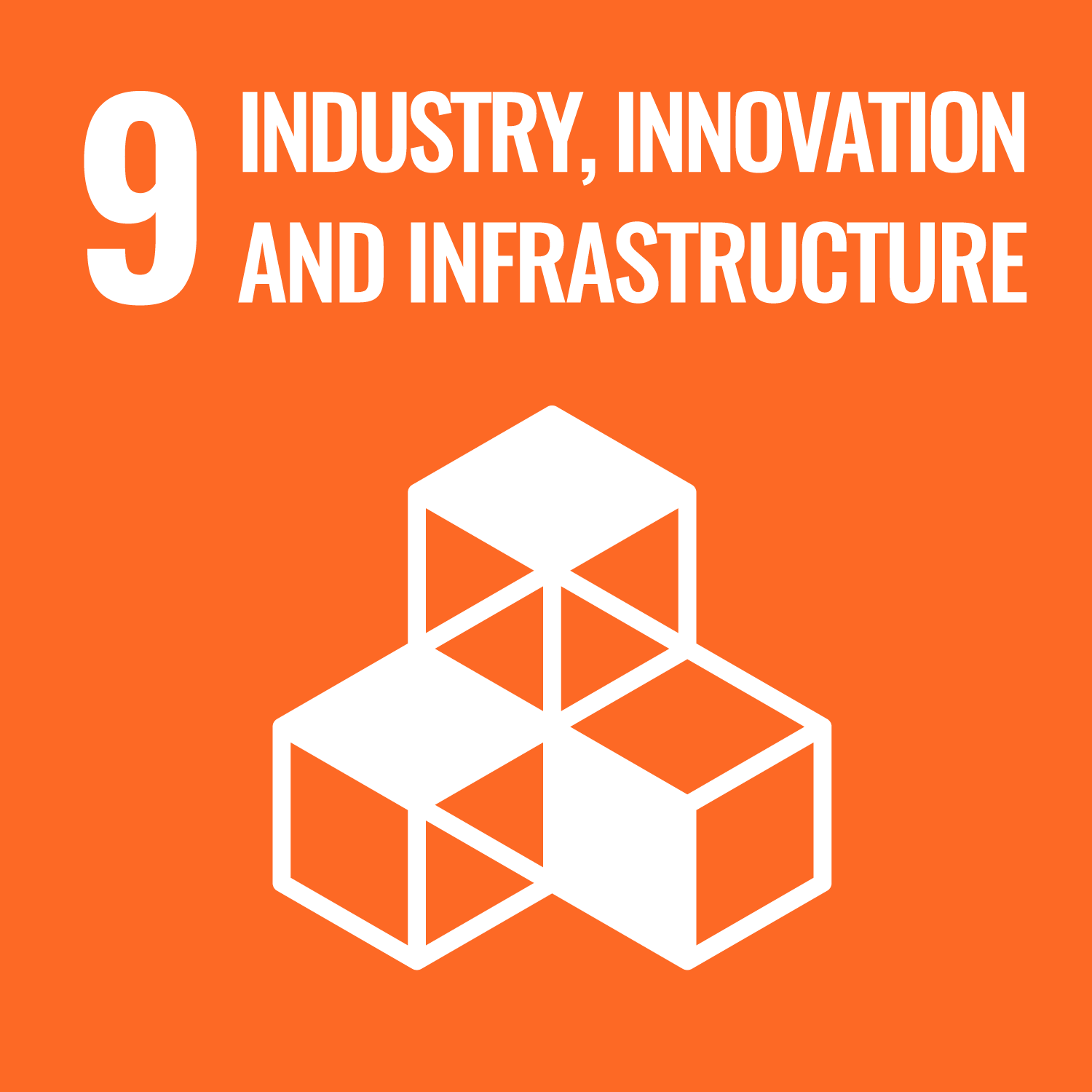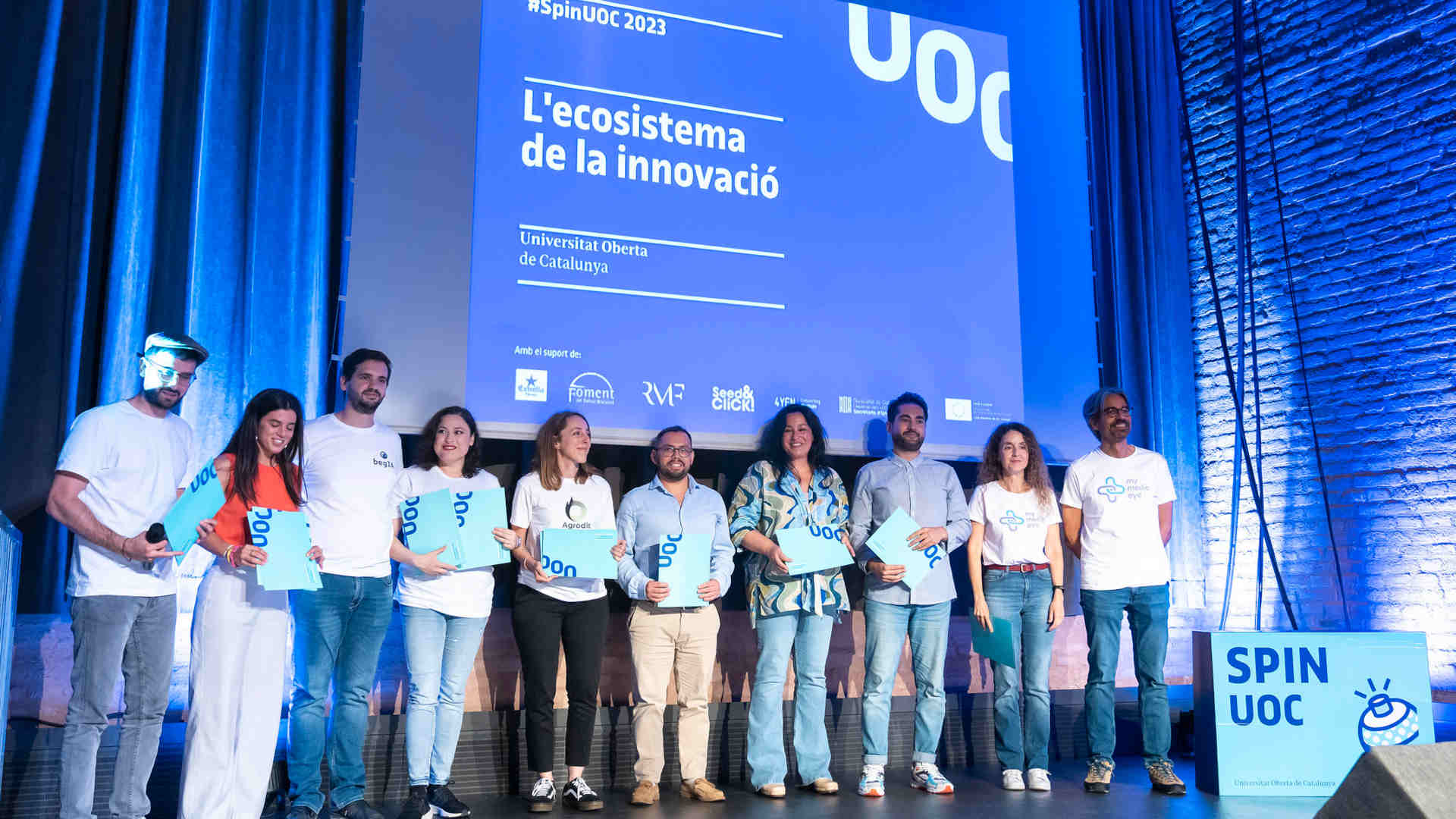Metabar, a smart bar designed to eliminate queues for drinks at festivals and concerts
The project was one of the finalists in this year's SpinUOC, the UOC's entrepreneurship programme
Fastfest is a start-up developed by Arnau Camps, a student on the Master's Degree in Digital Innovation and Transformation at the Universitat Oberta de Catalunya (UOC). At this year's SpinUOC, the University's entrepreneurship programme, the company presented Metabar, a high-capacity automatic self-service drinks dispenser designed to optimize the purchasing process for bars at large events. It is an ambitious project that aims to speed up the sale of drinks at festivals and concerts. The live music market is booming and has a promising future, so Metabar's promoters are confident in the potential success of their project.
The project makes sense when you consider that its creators are avid fans of festivals and concerts. For them, the long queues to buy drinks at the bars have always been "incomprehensible", Camps explained. "Even more so when we realized that bars and bar services are the main source of revenue at these events." All three partners in the project have worked as bartenders, so they know the problems behind the bar first-hand and can see the issue from both sides.
Camps and his partners carried out a market study consisting of interviews to find out festival and concert organizers' views on these issues. The people attending were also surveyed to get their input and understand what they value most when ordering at a bar and what difficulties they have encountered at the festivals and concerts they have been to. They were also asked about their favourite drinks.
Arnau Camps presenting his project at SpinUOC on 27 June
“Speed is the most important factor when ordering from a bar”
Imaginative solutions
This preliminary study allowed them to draw some conclusions. The organizers are aware of the problems and are trying to solve them, but "with inefficient methods," said Camps, "such as fitting a double bar, where some waiters only pour beers and put them on a table, and others only take money and serve pre-poured beer, which means a loss of product quality and the need to hire more staff". So, the proposal made by Camps and his partners was warmly welcomed.
As for the concert goers, 99% of those surveyed admitted to having experienced problems with the bar service, such as long queues or mistakes in handling orders. Camps said: "Speed was the most important factor for them when ordering from a bar, far ahead of other factors such as the human touch or personalization." According to the survey, beer is the most consumed drink at these events, accounting for between 55% and 80% of total consumption. Figures were also taken from consumer preference reports produced by cashless NFC wristband providers.
The Fastfest project is based on some experiences in the UK, where there are two companies that provide automated beer servers. "Fastfest has a cloud service to monitor sales and stock levels, predict consumer demand and warn when a keg needs to be replaced, all in real time," said Camps. It also has some features that help them "make some of Fastfest's internal processes, such as setting up all the points of sale (prices, logos, capacities, etc.), much more efficient. We'll be able to do this remotely or have the technical service notified directly in the event of a breakdown, optimizing the time it takes to locate and repair the problem."
The project requires a significant technological investment, as it involves automating the pouring of beer, which is "very complicated because it always has to come out right, and the head is usually a problem. […] Fortunately, we've managed to standardize every beer we serve with the right amount of head, the perfect creaminess and the perfect temperature," he said. Ensuring that the programming of the order processing screen, the point-of-sale terminal and the various hardware components, such as laser sensors or solenoid valves, work according to each customer's requirements also requires an investment in technology. "We also have audiovisual screens where sponsors can advertise by integrating their advertising into the purchase process itself, and we can quantify the real impact of their campaigns, also thanks to the cloud service."
Funding
The project has so far been self-funded by the partners, but there has also been a friends-and-family funding round and it has won four entrepreneurship awards. "We have a small investor, but with no shares in the company," said Camps. This has allowed us to develop "a minimum viable product so that it can be validated in the marketplace," he explained. "We believe that with the metrics we've obtained over the last two months, we have what we need to attract the attention of investors." Camps and his partners are also applying for a loan of €75,000 from Enisa to help them move forward.
The benefits of participating in SpinUOC
Speaking about participating in SpinUOC, Camps said: "Firstly, it means getting help from experts in business, communication and other fields to take the project to the next level. Meeting and talking to other entrepreneurs can in some cases lead to synergies and we all learn from each other. In addition, SpinUOC gives us the extra visibility that projects need at this stage, and its recognition helps us to move forward and explore all the opportunities that arise."
This entrepreneurial project contributes to United Nations Sustainable Development Goal (SDG) 9: Industry, innovation and infrastructure.
UOC R&I
The UOC's research and innovation (R&I) is helping overcome pressing challenges faced by global societies in the 21st century by studying interactions between technology and human & social sciences with a specific focus on the network society, e-learning and e-health.
Over 500 researchers and more than 50 research groups work in the UOC's seven faculties, its eLearning Research programme and its two research centres: the Internet Interdisciplinary Institute (IN3) and the eHealth Center (eHC).
The university also develops online learning innovations at its eLearning Innovation Center (eLinC), as well as UOC community entrepreneurship and knowledge transfer via the Hubbik platform.
Open knowledge and the goals of the United Nations 2030 Agenda for Sustainable Development serve as strategic pillars for the UOC's teaching, research and innovation. More information: research.uoc.edu.
Experts UOC
Press contact
-
Anna Torres Garrote


